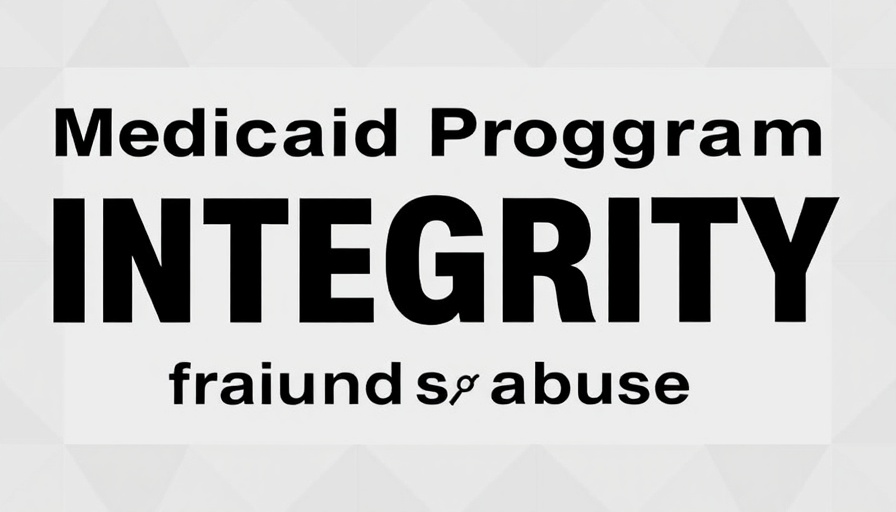
Understanding Medicaid’s Program Integrity: A Vital Health Safety Net
Medicaid stands as a crucial pillar in the American healthcare landscape, providing health and long-term care coverage to approximately 83 million low-income individuals. However, the sustainability and efficiency of this program are under scrutiny, especially amid discussions of potential funding cuts and heightened focus on overcoming issues related to fraud, waste, and abuse.
Defining Fraud, Waste, and Abuse in Medicaid
The terms fraud, waste, and abuse are often merged in public discourse regarding welfare programs, yet they represent distinct challenges. Fraud involves intentional deception—like billing for services not rendered—while waste refers to unnecessary costs, such as ordering excessive tests. Abuse occurs when providers engage in practices that do not adhere to professionally accepted standards, resulting in further costs to the system. All these issues necessitate rigorous oversight but addressing them also risks the potential to diminish the quality of care recipients receive in the process.
The Impact of Improper Payments
According to federal estimates, improper payments account for a significant portion of Medicaid spending. However, it is crucial to differentiate between improper payments and fraudulent activity. For instance, a large percentage of improper payments result from documentation errors rather than malicious fraudulent intent. In fact, more than 79% of improper payments involve simple administrative mistakes rather than issues with the eligibility of beneficiaries.
Current Legislative Conversations and Public Sentiment
Recent discussions in Congress point to potential budget cuts approaching $880 billion to Medicaid over the next ten years, drawing bipartisan concern about how these cuts could impact low-income families. Polls indicate that while many Americans support combating waste and fraud, a vast majority—77% of the population—support the Medicaid program itself, recognizing its critical role in providing healthcare.
A Need for Balanced Oversight
A delicate balance must be struck between eliminating waste and maintaining the integrity and accessibility of Medicaid. Moving forward, both state and federal agencies are called to enhance their monitoring and oversight mechanisms while ensuring that administrative efficiencies do not come at a cost to care quality.
Taking Action: Your Benefits Matter
As policymakers navigate this intricate landscape, it is essential for beneficiaries to remain informed. New strategies aimed at improving program integrity can lead to better outcomes and proper utilization of Medicaid resources. If you have questions about your coverage or the programs available to you, especially as 2025 approaches, it is crucial that you understand your options and rights.
Get The Coverage You Deserve. Speak To A Specialist Today. Call 231-571-6100.
 Add Row
Add Row  Add
Add 




Write A Comment